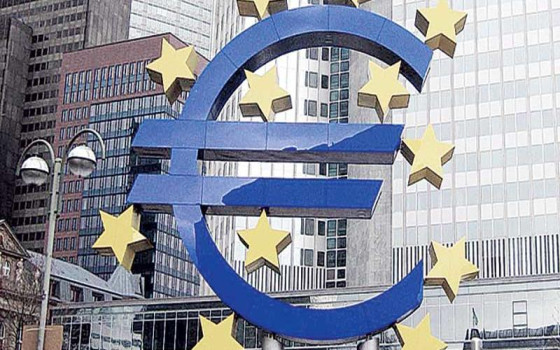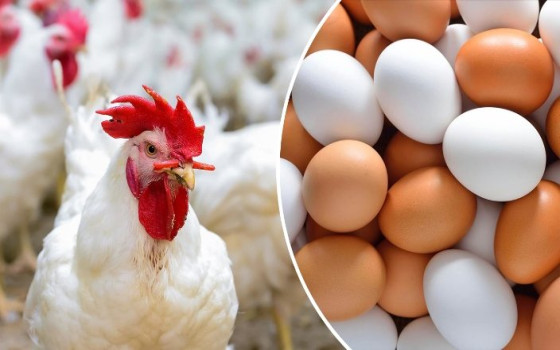Hypertension hits European countries.. and the prices of foodstuffs and others continue to rise

- Europe and Arabs
- Thursday , 2 March 2023 15:54 PM GMT
Brussels: Europe and the Arabs
European countries suffer because of high inflation rates, and European institutions have recognized the continuing high rates, and national data, whether in the eurozone countries or in the bloc countries in general, continue to publish data that confirms the continuation of suffering as a result of the continued rise in food and energy prices.
And the National Institute of Statistics in Spain INE announced that the estimated annual inflation of the consumer price index in February 2023 rose to 6.1%, according to the Spanish newspaper “La Pangordia”.
The National Institute of Statistics indicated that “this indicator provides a preview of the consumer price index, which witnessed an annual rate of 5.9% in January, due to the rise in electricity prices this month, compared to the decrease recorded in February 2022, and that foodstuffs and non-alcoholic beverages increased more than It was in February last year.
The ECB plans to raise its main interest rate by 50 basis points in March to 3%, but some policymakers have called for more cautious steps after that as the repercussions of previous rate hikes are now starting to show.
In Paris, inflation in France increased to 7.2% from 7%, exceeding expectations that it would remain at 7%, while inflation in Spain jumped to 6.1% from 5.9%, significantly exceeding expectations that it would reach 5.5%.
Some investors believe that there is a risk that the European Central Bank will raise interest rates by more than 50 basis points in March, and inflation is still subject to increase in France, after it was one of the lowest rates in the 20-country euro area during the past year.
France's inflation rate rose in February to 6.2%, matching its highest level in October, on the back of accelerating rises in food and services prices, according to France's National Institute of Statistics and Economic Studies.
And since consumer prices accelerated in 2022, the inflation rate has returned to levels not seen since the 1980s.
According to the institute, food products rose in February by 14.5% in one year, after rising by 13.3% in January.
At the same time, the institute noted that the rise in prices of manufactured goods also accelerated, and energy cost growth slowed significantly in February despite an increase in electricity prices by 15%.
In Brussels, the capital of Belgium and the European Union, inflation figures were announced, and at the same time the focus was on the rise in food prices as a result of the decline in slaughtering of livestock and poultry. The Belgian Statistical Office said that in 2022, 25.83 million heads of animals were slaughtered per month. Pigs account for the largest share by weight (60%, 877,000 pigs per month). In terms of numbers, chickens make up the majority, with 24.8 million chickens slaughtered per month.
A staggering decline in the numbers of pigs and chickens, and a continuous decline in the numbers of livestock
Over the entire year of 2022, 755,000 head of cattle will be slaughtered. This is a decrease of 2% compared to the previous year. This further confirms the downward trend that began in 2017.
In addition to the slaughter of 10.5 million pigs. This is a significant decrease of 9% compared to 2021. This decrease brings the number of pig carcasses to a level even lower than it was in the 2019 crisis.
For chickens, this relates to 298 million chickens before 2022. A decrease of 2% is seen here.
In Lisbon, thousands of people in Portugal took to the streets of the capital a few days ago to protest against the high cost of living. The demonstrators demanded that the government take measures for a more equitable life and an end to high prices, according to the Spanish newspaper Labangordia.
Protest organizers stressed the need to put in place a contingency plan to avoid a major crisis, and they condemn that inflation is leading to more evictions and lower wages.
The prices of some foodstuffs, such as eggs and milk, have risen by more than half, which is a much greater increase than in the eurozone as a whole.” In order to respond to one of the main concerns of the Portuguese, Prime Minister Antonio Costa announced ten days ago a series of measures to curb the increase in housing cost.
The Socialist government has allocated 900 million euros to reduce taxes on the rental market, simplify the mechanism for obtaining building permits and directly help families deal with the increase in rents and monthly mortgage payments.
However, the "Abita" association considered that the government, with these measures, made "the state support real estate speculation" instead of "regulating" the market.
According to a report by the European Statistical Office, Eurostat, core inflation in the eurozone hit a record high last January, with an increase in basic prices amounting to 5.3%. As for core inflation, which includes food and energy prices, it increased by 0.1% to reach 8.6%.
He added that with inflation rising to unprecedented levels, the European Central Bank is preparing to raise interest rates by another 50 basis points.
He pointed out, "It is clear that the European Central Bank will continue to tighten its monetary policies until inflation levels reach 2%.














No Comments Found